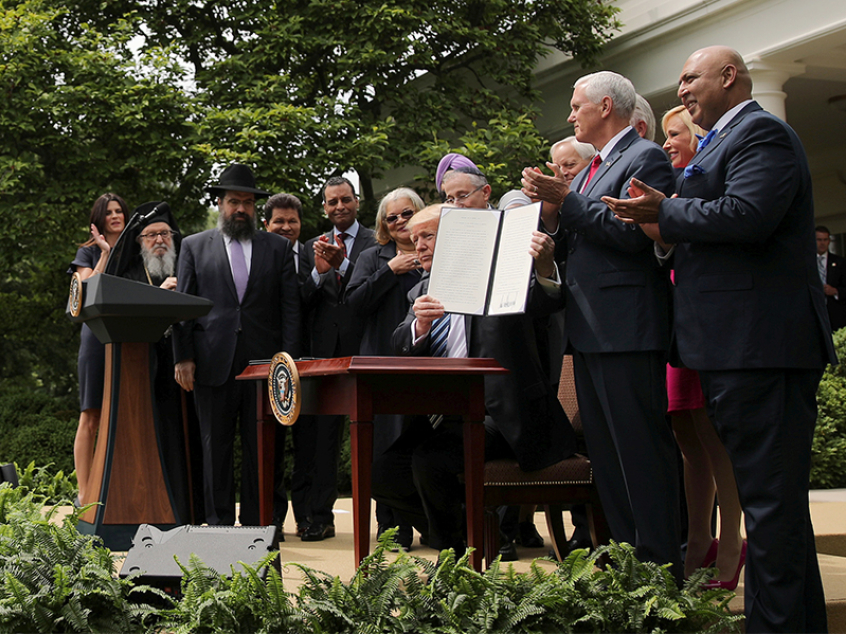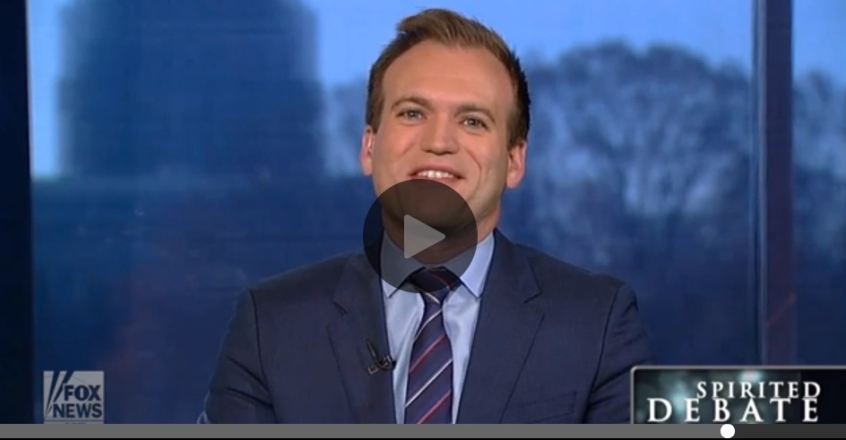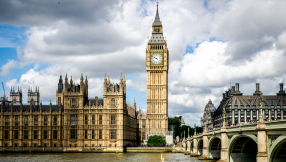Evangelicals have 'unprecedented' levels of influence and access into Donald Trump's White House, meeting foreign ambassadors and influencing high-level decisions from choosing senior personnel to consulting on policy, one adviser is claiming.
Amid ongoing criticism about Christians leaders' reluctance to denounce Trump after his handling of the Charlottesville tragedy, Johnnie Moore, a senior member of the president's evangelical advisory council, told Christian Today they have a duty to stick with him.

'How can you make a difference if you don't have a seat at the table?' he said.
'Our involvement is less about endorsing every word of action of the president and more about his endorsing of those issues important to us. We win some and we lose some, but – objectively speaking – he has done more to protect religious liberty and the unborn, for instance, than any president since Reagan and most of us believe he'll do far more than Reagan.
'He has opened the door more widely to evangelicals and he is fulfilling his promises.
'Also many of us know him personally and have known him and his family for a long time, so we know who he is compared to the caricature of him. This is why several of us have made it clear that there isn't a racist bone in his body.
'It's because we know him. We don't just know about him.'
In an email interview with Christian Today Moore, who also acts as spokesman for several evangelical leaders of Trump's board, admitted Trump was 'insensitive' at the press conference when he attacked the 'alt-left' alongside neo-Nazis and white supremacists for the Charlottesville riots. But he also accused the media of being 'selective' in reporting and insisted he was 'mainly satisfied' with Trump's first two statements responding to the crisis where he blamed 'both sides' for the violence.
He went on to say evangelicals' level of access in the White House means they have influenced or changed 'at least a half dozen appointees'. Although he refused to name which picks he was referring to, Moore said they ranged 'from judicial nominees to senior appointments at various departments including the State Department' where former oil tycoon Rex Tillerson was made secretary of state.

At the top of evangelicals' concerns at the presidential election was the make up of the US Supreme Court ahead of key decisions on abortion, transgender bathrooms and a business' right to refuse service to gay couples. Trump's appointment of Neil Gorsuch, a conservative known for siding with religious organisations in free speech cases, was seen as a major victory.
Detailing the extraordinary level of access given to evangelical leaders, Moore said: 'We were involved in expediting the appointment of the Ambassador at Large for International Religious Liberty, expanding the Mexico City Policy to an unprecedented scope protecting countless babies, the Religious Liberty executive order and the resulting regulatory reviews that are presently underway resulting from it.
'We were also pleased that – at our suggestion – the administration brought the National Day of Prayer to the Rose Garden with unprecedented participation by the President and Vice President. That event was an important spiritual moment for our country.
'We've also been consulted on various foreign policy priorities as it relates to Iraq and Syria as well as the President's trip to Rome, Jerusalem and Riyadh. We've consulted on various presidential appointments from Judicial nominees to senior appointments at various departments including the State Department. We have ongoing conversations related to issues like criminal justice reform and even immigration.'
He added: 'A number of our members have participated in meetings related to Israel, including with the US Ambassador to Israel and the Israeli ambassador to the US. We've also met with various religious figures from throughout the world, including Muslim leaders.
'We've also disagreed with the occasional decision made by the administration and we were able – because of our access – to immediately express our specific concern to the most appropriate decision makers.
'Also, our most important role is that our group provides personal and spiritual counsel, including prayer, for many specific individuals within the administration. Our ministry of prayer is our greatest joy. This is actually our primary activity, and we view it as our primary responsibility. It takes a lot of our time being a friend and spiritual counselor to many people and that includes low and midlevel personnel.'
He denied the validity of the comparison between business leaders, who have abandoned Trump's advisory boards in vast swathes since Charlottesville, and evangelicals who have not.
'Unlike the business advisory board members who have to answer to their boards, suppliers, customers, clients etc., as spiritual leaders we answer to God and we are responsible to give guidance whether it is taken or not.
'Thankfully I have a long, long list of incidences where our personal, policy or personnel advice was taken.'
Asked whether he and his colleagues were at risk of 'guilt by association' with Trump's presidency over his perceived sympathy to white supremacy, Moore said they all had 'quickly, forcefully and clearly condemned white supermacy, white nationalism, antisemitism and all forms of racism'.
He told Christian Today he was 'inspired' by the thought that '2,000 years ago self-righteous people were criticising Jesus for hanging out with tax collectors and such'.
'I might also add our involvement is principally as personal counsellors, far and above policy, and it extends way deeper in the White House than the President, Vice-President and executive staff.
'Every day we help and pray and provide counsel to individual help employees whose names no one knows but whose lives have been vastly [changed] by their choice to move to Washington to serve their country.'
He went on to insist he is 'not a partisan' and would have worked with Hillary Clinton or Barack Obama if they had asked for advice 'though I largely disagreed with their policies'.
He said: 'It's a responsibility for a Christian leader to provide advice when called upon. It is also the duty of a citizen. In this particular moment it couldn't come at a better time and for two reasons.
'First there are great divisions in this country that can only be healed by the power of faith. People of faith must stay at the table.
'Secondly, religious liberty in America was hanging on a knife's edge, and policy decisions made in the next few years are disproportionately important. The selection of Neil Gorsuch alone – not to mention the other 100+ vacancies across other courts – could secure our religious liberties for more than a generation.'













